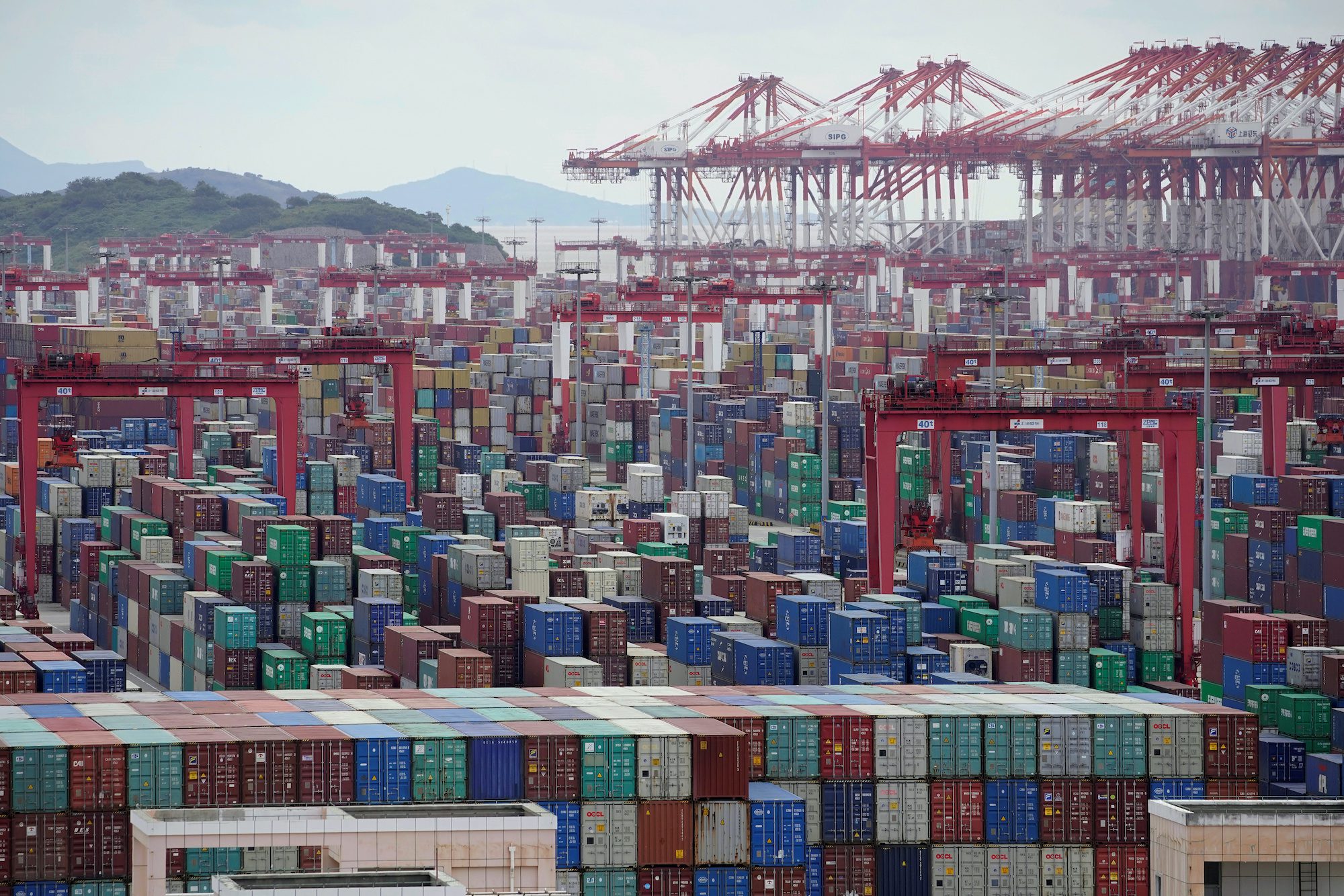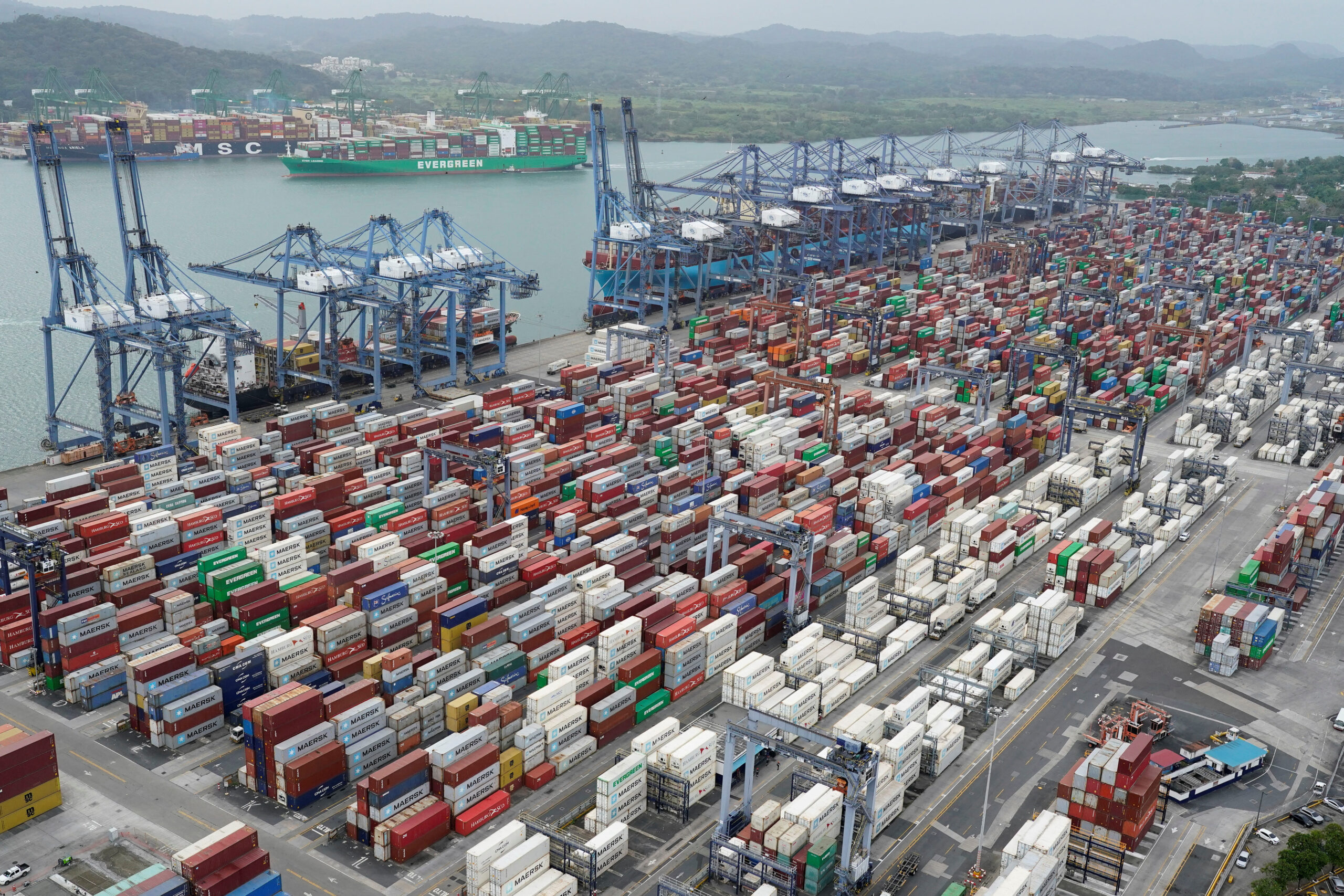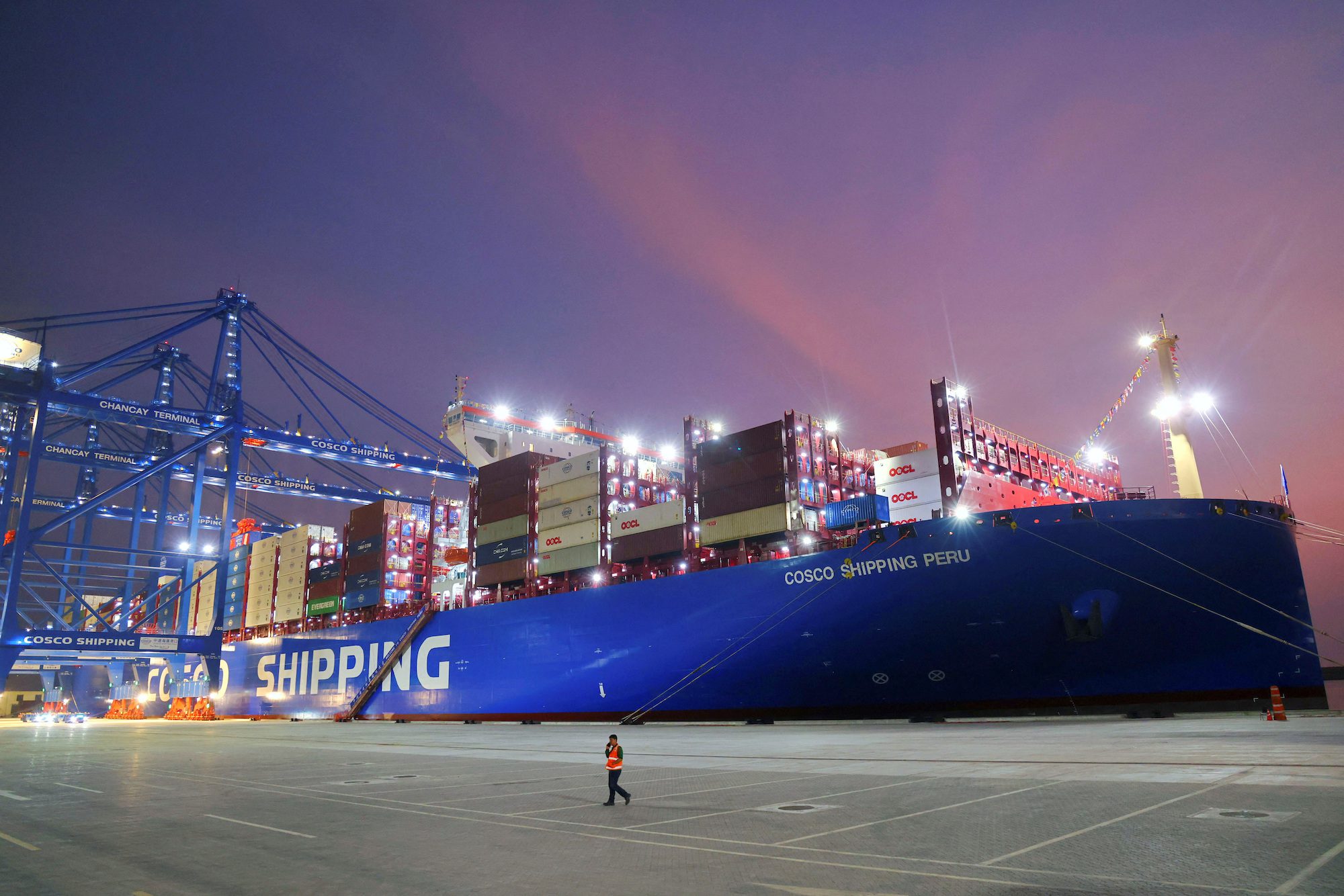By Alexander Whiteman (The Loadstar) –
Warnings of recession greeted the imposition of sweeping tariffs against the US’s three biggest trading partners on Saturday.
Supply chain chiefs have called for a rethink and operators have been urged to “get planning”.
Following campaign promises, President Trump hit Canada, China, and Mexico with tariffs, prompting those neighbours to begin tit-for-tat retaliation against the US, and China threatening action through the World Trade Organisation.
Steve Lamar, CEO of the American Apparel & Footwear Association, said the tariffs would “inject massive costs into our inflation-weary economy”, with the reciprocal action harming exports essential for US farming and manufacturing.
He added: “We should be forging deeper collaboration with our free trade agreement partners, not taking actions that call into question the very foundation of that partnership.”
The association’s SVP of policy, Nate Herman, called for tariff relief and “commitment to smart trade policy and strong trade partnerships”, including the renewal of expiring and expired trade preference programmes.
This, he said, would not only strengthen US competitiveness with its southern neighbours, but would also serve to “stem the tide of migration” that Mr Trump has used to justify hitting Canada and Mexico with 25% tariffs and China with 10% tariffs.
However, the Atlantic Council said China would be “breathing a sigh of relief”, the levies applied on its goods markedly lower than promised in some of Mr Trump’s campaign pledges.
The council said hitting Mexico with 25% tariffs would “quickly erode the economic growth and improvements in supply chain security” from the US-Mexico-Canada Agreement, to leave China in a far stronger position, because it would now be a cheaper place to source from.
A White House statement said: “The extraordinary threat posed by illegal aliens and drugs, including deadly fentanyl, constitutes a national emergency under the International Emergency Economic Powers Act,” adding the tariffs would stay in place “until the crisis is alleviated”.
Scott Curtiss, head of field presales for manufacturing at Relex Solutions, said following Brexit and the pandemic, these tariffs “spoke to the need for further diversification within global supply chains”.
“With Brexit and Covid we found that a lot of companies had two suppliers, but, for instance, they would both be in the same province of China, when what is really needed is a robust supply chain strategy with a differentiated supply base,” he told The Loadstar.
“This means companies need to be planning more, with different playbooks in place; you need to be in a place where if suddenly one raw material is hit with a tariff, you can reformulate and source elsewhere.”
Despite Mr Trump’s suggestion that the tariffs would be a short-term measure, removed once the “fentanyl crisis” was resolved, historian of US trade policy Douglas Irwin told the Wall Street Journal it was far harder to remove them than was perhaps understood.
“First of all, there are going to be domestic interest groups that have a stake in seeing those tariffs maintained, because they like the extra market share they’ve gained as a result,” he explained.
“Second, tariffs are a bargaining chip. So, why would we unilaterally get rid of these, even if there are some economic benefits, when we might use them in some negotiations down the road?” he asked.
As to any benefits, a report by the Biden administration, which led to the retention of tariffs imposed by Mr Trump during his first term, found that while they had led to US companies moving out of China, they also resulted in a more aggressive approach from China.
Mr Curtiss added that there had been a shift from China in recent years, the increase in diversification that global supply chains were undergoing stemmed from “multi-year” strategies that may take time to be fully realised.
The Loadstar is known at the highest levels of logistics and supply chain management as one of the best sources of influential analysis and commentary.
Editorial Standards · Corrections · About gCaptain

 Join The Club
Join The Club











